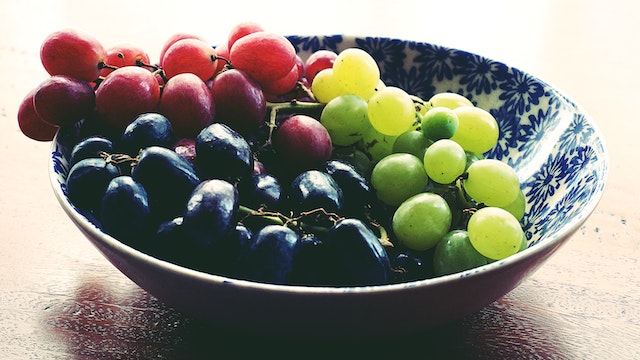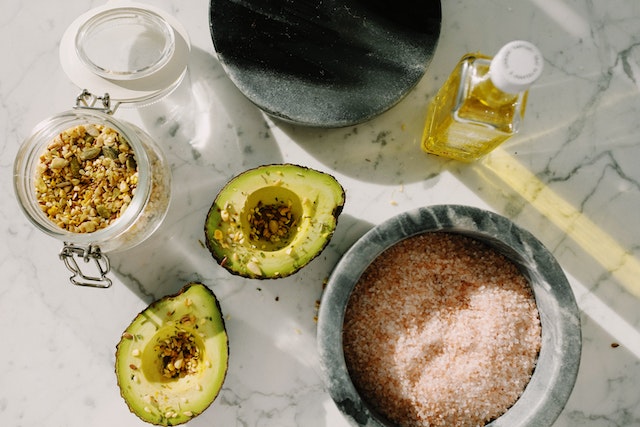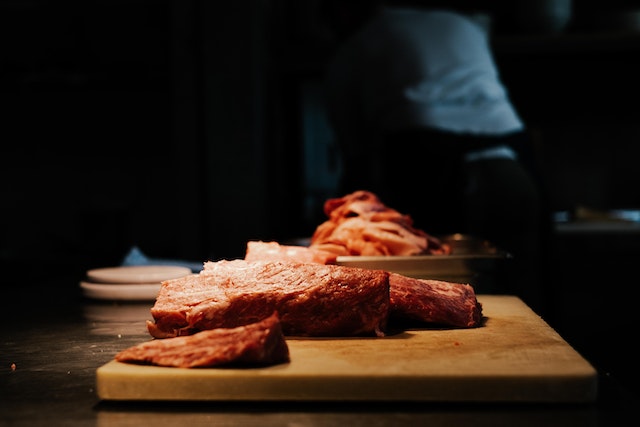- Have any questions?
- +880-1832219025
- englishrajib877@gmail.com
10 Foods That Are Toxic for Dogs and Should Be Avoided at All Costs

Where to Go on Vacation with Your Dog: Exploring Pet-Friendly Destinations
July 1, 2023
Unlocking TikTok SEO: Boost Your Reach with Effective Strategies
July 9, 202310 Foods That Are Toxic for Dogs and Should Be Avoided at All Costs

10 Foods That Are Toxic for Dogs and Should Be Avoided at All Costs
Welcome to the ultimate guide on foods that are toxic for dogs!
As pet owners, it’s our responsibility to ensure the well-being and safety of our furry friends.
While it may be tempting to share our favorite snacks with them, certain foods can be harmful and even fatal to dogs.
In this comprehensive guide, we will explore the top 10 foods that should be avoided at all costs.
From common household items to seemingly harmless treats, we will delve into the reasons why these foods are dangerous and the potential health risks they pose for our four-legged companions.
Whether you’re a seasoned dog owner or a first-time pet parent, this guide will provide invaluable information to help you make informed decisions about what your dog should and shouldn’t eat.
So, let’s dive in and ensure the health and happiness of our beloved dogs by being aware of the foods that can be detrimental to their well-being.
Chocolate: The dangers of chocolate consumption for dogs
Chocolate is a popular treat for humans, but it can be extremely dangerous for dogs. Theobromine, a substance found in chocolate, is toxic to dogs and can cause various health problems.
The darker the chocolate, the higher the theobromine content, making it more harmful to dogs.
When dogs consume chocolate, they may experience symptoms such as vomiting, diarrhea, increased thirst, restlessness, rapid breathing, and an elevated heart rate.
In severe cases, chocolate ingestion can lead to seizures, muscle tremors, and even death.
It’s important to note that the size and weight of the dog, as well as the amount and type of chocolate consumed, can affect the severity of the symptoms.
To protect your dog from chocolate toxicity, it’s essential to keep all chocolate products out of their reach. Be mindful of where you store chocolate, especially during holidays when it’s more readily available.
If you suspect that your dog has ingested chocolate, contact your veterinarian immediately. T
hey can provide guidance on what steps to take and may induce vomiting or administer activated charcoal to prevent further absorption of theobromine.
Grapes and raisins: The potential harm these fruits can cause to dogs

While grapes and raisins may seem like harmless snacks, they can actually be toxic to dogs.
The exact substance in grapes and raisins that causes toxicity is unknown, but even small amounts can have severe consequences for dogs.
Consuming grapes or raisins can lead to kidney failure in dogs. Symptoms may include vomiting, diarrhea, loss of appetite, abdominal pain, dehydration, and increased urination.
In some cases, dogs may develop more serious symptoms, such as lethargy, tremors, and seizures.
It’s important to note that the toxicity of grapes and raisins can vary among individual dogs.
Some dogs may consume grapes without any adverse effects, while others may experience severe toxicity from just a few.
To be safe, it’s best to avoid giving grapes or raisins to your dog altogether.
If you suspect that your dog has ingested grapes or raisins, seek veterinary attention immediately.
The veterinarian may induce vomiting or administer activated charcoal to prevent the absorption of toxins.
They may also provide supportive care, such as intravenous fluids, to help flush out the toxins and support kidney function.
Onions and garlic: The toxic compounds found in these common kitchen ingredients
Onions and garlic are staple ingredients in many kitchens, but they can be highly toxic to dogs.
Both onions and garlic contain compounds called thiosulphates, which can cause damage to a dog’s red blood cells, leading to a condition called hemolytic anemia.
Symptoms of onion or garlic toxicity in dogs may include weakness, pale gums, elevated heart rate, rapid breathing, vomiting, diarrhea, and even collapse.
In severe cases, dogs may require blood transfusions to replace the damaged red blood cells.
It’s important to be vigilant when cooking or preparing food that contains onions or garlic. This includes dishes like onion soup, garlic bread, or even certain seasonings and sauces.
Make sure to securely store these ingredients and any meals containing them in a place that is inaccessible to your dog.
If you suspect that your dog has consumed onions or garlic, contact your veterinarian immediately.
They may induce vomiting or administer activated charcoal to prevent further absorption of the toxic compounds.
The veterinarian will also monitor your dog’s blood work and provide supportive care as needed.
Xylitol: The hidden danger in sugar-free products for Dogs
Xylitol is a sugar substitute commonly found in sugar-free gum, candy, baked goods, and other products.
While it may be safe for human consumption, xylitol is highly toxic to dogs.
When dogs ingest xylitol, it causes a rapid release of insulin, leading to a dangerous drop in blood sugar levels.
Symptoms of xylitol poisoning in dogs can occur within 30 minutes to an hour after ingestion and may include vomiting, loss of coordination, seizures, collapse, and even liver failure.
It’s important to note that xylitol can be found in unexpected items, such as toothpaste, peanut butter, and medications, so always read product labels carefully.
If you suspect that your dog has ingested xylitol, seek veterinary attention immediately.
The veterinarian will monitor your dog’s blood sugar levels and provide appropriate treatment, which may include inducing vomiting, administering intravenous fluids, and giving glucose supplementation.
Avocado: Understanding why avocados can be harmful to dogs

Avocados have gained popularity as a healthy and nutritious food for humans, but they can be toxic to dogs.
The specific compound in avocados that can cause harm to dogs is called persin, which is primarily found in the leaves, bark, and pit of the fruit.
While the flesh of the avocado is generally safe for dogs in small quantities, the pit and other parts of the plant contain higher concentrations of persin.
Ingesting these parts can lead to symptoms such as vomiting, diarrhea, abdominal pain, and pancreatitis in dogs.
To keep your dog safe, it’s best to prevent them from accessing the pit or any parts of the avocado plant.
If you have an avocado tree or plant in your yard, ensure that your dog cannot reach it.
Additionally, be cautious when sharing avocado-based foods with your dog, as some guacamole recipes may contain ingredients that are toxic to dogs, such as onions or garlic.
If you suspect that your dog has ingested avocado or any part of the plant, contact your veterinarian for guidance.
They can assess the situation and provide appropriate recommendations based on the amount consumed and your dog’s overall health.
Alcohol and caffeine: The adverse effects of these substances on dogs
Alcohol and caffeine are common substances found in many households, but they can be highly toxic to dogs.
Dogs are much more sensitive to the effects of alcohol and caffeine than humans, and even small amounts can cause significant harm.
Alcohol consumption can lead to symptoms such as vomiting, diarrhea, disorientation, tremors, difficulty breathing, and even coma or death in dogs.
It’s important to note that alcohol can be found in unexpected sources, such as certain desserts or fermented foods, so it’s crucial to keep these items out of your dog’s reach.
Caffeine, whether from coffee, tea, energy drinks, or chocolate, can also be dangerous for dogs.
Ingesting caffeine can cause symptoms such as restlessness, increased heart rate, tremors, seizures, and in severe cases, collapse and death.
To protect your dog from alcohol and caffeine toxicity, ensure that these substances are securely stored and kept away from your dog.
Be cautious when hosting parties or gatherings, as guests may accidentally leave alcoholic beverages within reach of your dog.
If you suspect that your dog has ingested alcohol or caffeine, contact your veterinarian immediately.
They can provide guidance on what steps to take and may induce vomiting or administer activated charcoal to prevent further absorption of the toxic substances.
Macadamia nuts: The specific toxins in macadamia nuts and their impact on dogs
Macadamia nuts are a delicious snack for humans, but they can be harmful to dogs.
The exact toxins in macadamia nuts that cause toxicity are still unknown, but even small amounts can lead to symptoms in dogs.
When dogs consume macadamia nuts, they may experience symptoms such as weakness, vomiting, diarrhea, tremors, muscle stiffness, and an elevated body temperature.
In some cases, dogs may have difficulty walking or standing, and they may exhibit signs of pain or discomfort.
To protect your dog from macadamia nut toxicity, avoid giving them any foods that contain macadamia nuts.
This includes cookies, chocolates, and certain baked goods. Additionally, be cautious when cooking or baking with macadamia nuts, as dogs may be attracted to the aroma and try to consume them.
If you suspect that your dog has ingested macadamia nuts, contact your veterinarian immediately.
They can assess the situation and provide appropriate recommendations based on the amount consumed and your dog’s overall health.
Raw meat and bones: The risks associated with feeding dogs raw food

Feeding dogs a raw food diet has gained popularity in recent years, but it’s important to be aware of the potential risks involved.
While raw meat and bones may seem natural for dogs, they can pose various health hazards.
Raw meat can be contaminated with bacteria such as Salmonella or E. coli, which can cause food poisoning in dogs.
This can lead to symptoms such as vomiting, diarrhea, loss of appetite, and dehydration.
Additionally, bones can pose a choking hazard or cause injuries to a dog’s digestive tract, mouth, or teeth.
If you choose to feed your dog a raw food diet, it’s crucial to handle and prepare the food safely.
This includes practicing good hygiene, properly storing raw meat, and keeping surfaces clean to prevent cross-contamination.
It’s also important to consult with a veterinarian to ensure that your dog’s nutritional needs are being met and to address any concerns or potential health risks.
Other foods to avoid: A list of additional foods that can be toxic to dogs
In addition to the previously mentioned foods, there are several other items that should be avoided to ensure the safety and well-being of your dog. These include:
- Alcohol
- Avocado
- Caffeine
- Chocolate
- Grapes and raisins
- Macadamia nuts
- Onions and garlic
- Xylitol
- Raw meat and bones
It’s important to be vigilant and aware of potential dangers, as even small amounts of these foods can have harmful effects on dogs.
By avoiding these items and ensuring that your dog’s diet is comprised of appropriate and safe foods, you can help protect their health and prevent unnecessary health complications.
Conclusion: The importance of consulting with a veterinarian and being aware of potential dangers.
As responsible pet owners, it’s crucial to be aware of the foods that can be toxic to dogs and to take steps to prevent their consumption.
By understanding the dangers associated with certain foods, we can ensure the safety and well-being of our canine companions.
If you suspect that your dog has ingested any toxic foods, it’s important to seek veterinary attention immediately.
Early intervention can significantly improve the outcome and minimize potential health risks.
Consulting with a veterinarian is essential when it comes to your dog’s diet and nutritional needs.
They can provide personalized recommendations based on your dog’s age, breed, size, and overall health.
They can also address any concerns or questions you may have regarding specific foods or ingredients.
Remember, prevention is key. By being informed and proactive, we can keep our dogs safe and healthy, allowing them to live long, happy lives as cherished members of our families.
So, let’s make smart choices when it comes to what our dogs eat and ensure their well-being every step of the way.
You can also read:
Where-to-go-on-vacation-with-your-dog
Home Loan for First Time Buyer
Mushroom Chocolate: A Delightful Blend of Flavors and Health Benefits
Refinance Your Mortgage and Save Thousands
Mortgage with Bad Credit Comprehensive Guide






3 Comments
Important tips site good information
Helpful post thank you so much
Thanks a important post